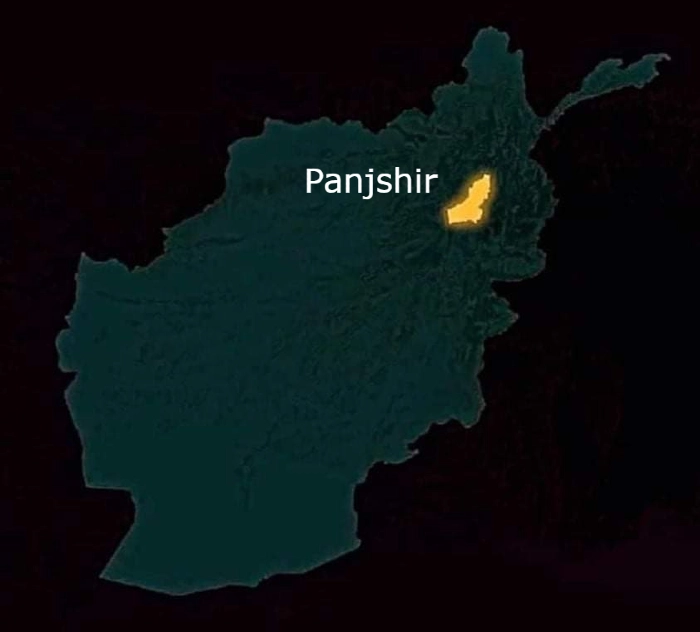In an obvious reference to Pakistan, Iran on Monday "strongly condemned" the "foreign interference" in Afghanistan after Pakistani drones and helicopters pounded the Panjshir valley–the ground zero of the anti-Taliban resistance, led by the young Ahmad Massoud, the son of famed Afghan-Tajik commander, late Ahmad Shah Massoud.
"Everybody should know that the history of Afghanistan has proved that foreign meddling will result in nothing but failure," said Iranian Foreign Ministry spokesperson Saeed Khatibzadeh while strongly condemning the "extremely worrying" situation in northern Afghanistan.
It is for the first time since the fall of Kabul that Iran, has criticised the Taliban for indulging in massive violence against Afghanistan's Tajik minority, which has historically shared strong cultural bonds with Iran.
Calling on the Taliban to honour its commitments, Iran urged that the conflict in Panjshir should be settled politically and through negotiations.
"Nobody should allow this path to end with fratricide," Khatibzadeh was quoted as saying by the Tasnim News Agency.

It was evident that the Iranian foreign ministry was training its guns on Pakistan. India Narrative had reported earlier that Fahim Dashti, a spokesman of Ahmad Massoud's National Resistance Front (NRF) was killed in fighting in Panjshir province on Sunday.
The news was confirmed by the NRF. According to the report, NRF commander, General Abdul Wadud Zareh, uncle of Ahmad Masoud also died in a drone attack.
Unsurprisingly, Khatibzadeh condemned Sunday's attacks on Panjshir in the strongest terms and expressed regret at the martyrdom of Afghan leaders.
Analysts point out that with the head of the ISI, Faiz Hameed in Kabul, Pakistan was piloting the attack on the Panjshir valley. Hameed, arrived in Kabul on Saturday to sort out internal differences among the Taliban, and to help the group to strategise and defeat the resistance in Panjshir, which has never been conquered by the group, even during its previous rule in the mid-nineties.
Pakistan is providing air support to Taliban fighters in Panjshir, says the Panjshir based National Resistance Front (NRF), adding that some Pakistani commandos have been airdropped to help the Taliban.
Also Read: Taliban goes for the kill in Panjshir with ISI Chief in command
Over the last few weeks, Tehran has been deeply involved in making efforts for the formation of "an inclusive government" with the participation of all Afghan ethnic groups and factions.
On Sunday, the country's new Foreign Minister Hossein Amir Abdollahian spoke with Abdullah Abdullah, the head of Afghanistan’s High Council for National Reconciliation.
An ethnic Tajik-Pashtun who is currently holding talks with the Taliban in Kabul, Abdullah was once a top aide to Ahmad Shah Massoud – the much-revered Tajik commander who is known as the 'Lion of Panjshir' for his heroics against the Soviets and the Taliban.
Iran's foreign ministry said that the two sides agreed on the need to fight the "heinous phenomenon of terrorism" and also discussed the formation of an inclusive government with the participation of all Afghan ethnic groups and factions.
They also reaffirmed their position that it's only up to the Afghan people to determine their country’s future
"Abdullah Abdullah thanked Iran for defending the Afghan people. He also spoke of the dire situation in Afghanistan and called on Iran to send humanitarian aid to his country," said Abdollahian.
As reported by India Narrative before, the majority of fighters in the Islamic fundamentalist group Taliban are from rural southern Pashtun backgrounds, especially Ghilzai Pashtuns.
The resistance movement, mainly confined to the Tajik corner in the northeast and the Panjshir valley. Apart from the ethnic Tajiks, the Uzbeks, Hazaras and Shias comprise significant minorities in a country dominated by ethnic Pashtuns. It is as yet unclear whether the NRF also includes fighters from other non-Pashtun ethnic communities which formed the core to the erstwhile Northern Alliance which had battled the Taliban, after the group had taken over Kabul in 1996.
Also Read: Is Afghanistan becoming a battleground between Talibani Pashtuns and other ethnic groups?




















